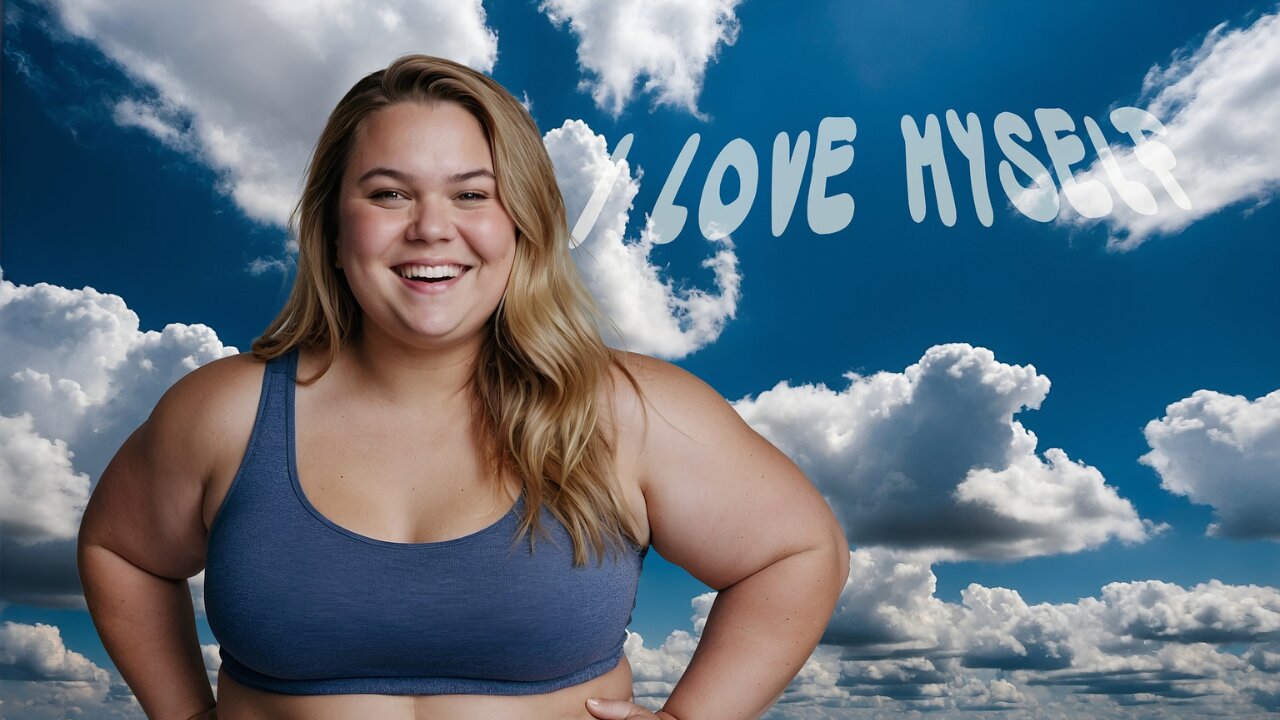The Power of Self-Acceptance and 3 Practices That WORK

Contents
Why You Need to Stop Hiding and Start Shining
Listen, lovely. We often reject and suppress vast parts of ourselves, and honestly, we are not even conscious of it half the time – neither the parts we suppress, nor the process of suppressing them. Suppressing, avoiding and rejecting these parts takes a massive amount of energy away from other areas of our lives. Think about it for a second – are you really embracing your full potential? Or is a part of you permanently busy pushing certain aspects of your life into the shadows?
Suppressing aspects of yourself can create permanent tension in your body and your mental state. You are much likely to feel stressed, drained, anxious or depressed. And honestly friend, you deserve so much better than that.
Once you start the process of self-acceptance, you’ll feel an urge to let go of needing validation from other’s and caring about their opinions. It no longer matters if people like you because you like yourself, just as you are. You make space for your true nature to shine, and this light of yours will naturally attract everything good in your life.
We Want to Hear From You!
Have you ever felt that sudden relief when you stopped trying to please everyone? Share your “aha” moment in the comments below – your experience might be exactly what another sister needs to read today!
Finding Peace in Your Own Skin
Drama and tension can dissolve when you stop fighting yourself. Someone who has accepted herself fully is at peace with people and her environment. There is no need to prove anything – neither to others or yourself. Self-acceptance also means to be at peace with your flaws. To look at them, name them, integrate them into your being and make them a part of your existence.
It doesn’t matter if you believe in a higher power or not, but something is certain: All creatures on this planet evolved perfectly. Nature is a genius. Just think about what evolution did – our whole planet was a hot rock, floating through space and now we are living and breathing on mother earth, amongst other beautiful creations. No matter who or what did that, it proves that YOU are perfect just as you are.
You are not an accident or wrong. You are a part of this perfect system. Your flaws dont matter that much and even more – they make you YOU, they make you unique, and there are thousands of examples of people who made it with flaws. So looking at and accepting your flaws is one part but seeing your real beauty, your awesomeness, your genius, your indescribable perfection is another.
I observed that it could be easier for many people, especially women – to accept their flaws, but it’s a whole different level to recognize their greatness, beauty, and perfection. Not seeing these parts of ourselves that make us outstanding keeps us safe. But playing small doesn’t serve the world, lovely.
And if you’re thinking, “Eeeehhh, I don’t have that much to offer,” Look again, and again if you have to. Every human on this planet is a whole universe full of wonder and greatness – even you. We are all equal, that is not a beautiful fairytale, it is the truth.
We are not the same – what is easy for me may be hard for you. Things you love to give to others with grace and ease may look clumsy and unreal if I try them, but we are equal in our worth, value, core – I have almost no words to describe this, what is us, what is YOU. With that being said, I want to introduce you to some of my best tips and practices you can use on a daily basis to accept yourself as you are. Embarking on this journey is truly healing and becoming whole.
If you start accepting yourself, you become whole because you invite the parts of you that were suppressed and rejected back home, back into your presence.
Alright, now let’s get practical and dive into what can help you do that!
1. Mirror Work
Mirror Work is inspired by Louise Hay, and her book “Life Loves You” (an awesome read and highly recommended!). I remember Mirror Work being a big part of my journey into a loving and healing relationship, after years of drama with my ex-boyfriend, followed by years of loneliness being single. I realized that having loving relationships starts with loving myself. If I accept myself, others can, too. I began to build this relationship with daily mirror work.
Here’s how to do it, lovely:
Take some time every day and look intentionally into your own eyes in a mirror. Maybe you’re thinking, “I look into a mirror every day, what’s the point?” Yes, I hear you – but do you do it INTENTIONALLY? Probably not. Make space for this practice, take some time and maybe have your journal handy. Stand or sit in front of the mirror and take a few deep breaths. Feel your feet on the floor, get still and look yourself into the eyes – deep and intentionally.
It can be challenging in the beginning. Long forgotten emotions can come up, or you feel weird doing it. All of your feelings are ok. Stay for a few minutes. Don’t force anything. Just watch and make some notes in your journal about your experiences right after it. I prefer to do this on a daily basis, rather than overwhelming myself by practicing this exercise too long. Make a habit out of looking into your own eyes when you see yourself in the mirror.
As soon as you feel safe and comfortable, start to smile at yourself. Tell yourself “I love you” and “I accept you as you are.” Use “I AM” affirmations if you like. Look consciously at your face and start to detect your beauty. See yourself through the eyes of love. How would somebody look at you who is entirely in love with you? What details would he or she notice and how excited would he/she be? Feel into that.
As soon as you feel safe and comfortable with your face, you can expand this exercise to your whole body. And again, do it consistently on a daily basis, when you take your morning shower and get dressed, for instance. Form a new habit. Small, subtle shifts every day make a huge difference eventually. Fall in love with who you see in the mirror!
2. Learn to say NO
Integrity is a huge help to accept yourself. Many of us ladies often say “yes” when we actually mean NO. You know that you don’t want to do something; you don’t want to go on that date or be in that relationship or help your mother in law. You don’t want to do that thing at work or take that client – but you do it. You are afraid to be rejected, and you need approval and acceptance from others to feel validated or worthy. The thing is every time you say “yes” to something when you mean “NO” – you reject yourself.
It is much harder to accept yourself when you do not listen to your own needs and desires. You start acting against yourself. Plus, nobody likes people who’d instead say a half-assed “yes” than a full-hearted “NO.” Saying “no” is grounding. If you start to say “NO” you will close many doors; doors you didn’t want anyway, but don’t be afraid to miss out! The universe WILL open other doors for you and you get to choose new and better options.
Getting rid of tasks that you don’t want also clears up your mind and agenda for new and fresh things that you love doing! Checking in with yourself and having the confidence to say no will boost your confidence and self-acceptance. You can make a list today with everything that you said yes to, even if you knew better.
Let’s Chat!
Is saying “No” a struggle for you? What’s one thing you wish you could say no to right now? Drop a comment below – let’s support each other in setting healthy boundaries!
Be honest and gentle with yourself. If you feel resentment coming up, forgive yourself. As soon as you finished your list, look at it again and ask yourself: How can you make these things right? If they are in the past, like all the times you stayed late at a job instead of going to your yoga class, forgive yourself and feel empowered to say no in the future. If it is still ongoing – like a relationship for instance – you can check in with yourself if you are ready to clear things up and have an honest talk with the other person.
Write your solution for each of the points down and commit to doing them. Accepting yourself comes naturally if you are honest and upright with yourself and others.
3. Journaling
Journaling is a fantastic tool to get comfortable with yourself. Not accepting ourselves means, that there are parts of us that we reject or suppress, like emotions, life events and also your own characteristics or habits. Journaling is an amazing tool to reflect on what it is that is not in your consciousness. Making time for yourself on a daily basis to write in your journal will make a massive difference for you over time. You don’t have to spend hours on your journaling, of course, you are busy and your day is full, but ask yourself where you have 10 minutes to calm down and spend with your journal.
Maybe in the morning before your day starts or in the evening before you go to bed? Make it a habit like brushing your teeth or taking a shower. See it as necessary mental hygiene. There is no “wrong” way to journal. Just sit down and write what is going on in your mind. Listen to your thoughts and write them out. It can feel weird at the beginning, but self-acceptance also means to get conscious of and accept what is going on in your mind.
Again, there is nothing wrong, everything is alright, and you are safe if you start to write out what is in your mind. The paper is your friend. Your thoughts belong to you, and nobody will ever read or judge what you wrote. If you want to make sure that it doesn’t get into the wrong hands burn the paper or rip it apart. You can also get more specific in your journaling to elevate and support your self-acceptance.
Here are some journaling exercises you can use to do that:
- 1. What do you think is beautiful about yourself?
- 2. What is it that you are good at?
- 3. What is it that others like about you? (You can ask them!)
- 4. What is it that you reject/don’t like about you? Is it really that important? Can you find a benefit in it/make peace with it/change it?
Make lists with your answers. You can finish them in one session or add them up over time if new things are coming up for you.
One last tip – give yourself huge credit every day! Not acknowledging your success and daily achievements can make you feel miserable and small. Make a conscious effort to recognize and accept all of your successes throughout the day – from getting up in the morning until sitting down with your journal.
You are awesome and acknowledging that will get you a huge step ahead with your self-acceptance.
We Want to Hear From You!
Share your story in the comments below – your experience might help another woman. Which of these tips are you going to try first? Let’s support each other on this journey to becoming whole!
Frequently Asked Questions
Why is self-acceptance so difficult for many women?
Self-acceptance can be tricky because we often seek validation from outside sources rather than from within. We are conditioned to hide our "flaws" to fit in, which leads to suppressing our true selves. However, acknowledging both your greatness and your imperfections is the key to true freedom.
How does saying "No" help with self-love?
Saying "No" when you mean it is an act of integrity. Every time you say "yes" to something you don't want to do, you are rejecting your own needs. Setting boundaries protects your energy and reinforces to your subconscious that you value yourself.
What is Mirror Work and how do I start?
Mirror Work is a practice popularized by Louise Hay where you intentionally look into your own eyes in a mirror to build a relationship with yourself. Start by taking a few deep breaths, looking deeply into your eyes, and eventually saying "I love you" or "I accept you." It might feel awkward at first, but consistency is magic!








